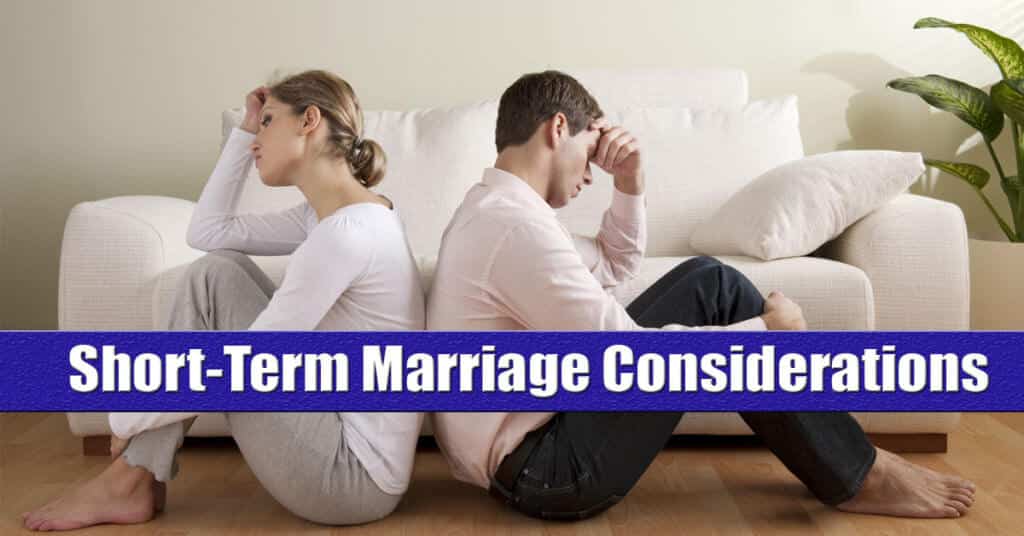As an experienced Long Island Divorce Attorney, I’ve met with many people who are curious about how divorcing after a short term marriage compares to a divorce of a longer marriage. Many have heard stories or rumors about divorces that ended with substantial property distributions and large long-term spousal support (also known as alimony) payments. These awards are generally reserved for longer marriages. However, certain issues do arise with short term marriages, and divorcing couples should be aware of the implications. Short term marriages can be affected by:
Equitable Distribution in Long Island Divorce Cases
New York is an Equitable Distribution state, which means that marital property is divided equitably between the former spouses. First, note that this method of distribution applies only to marital property, which refers to property acquired by either spouse during the course of the marriage, with few exceptions. As a result, property that was purchased by one spouse prior to the marriage would not be eligible for distribution during a divorce proceeding. That type of property is known as separate property, and will belong to the person who purchased it or owned it prior to the marriage.
Equitable Does Not Mean Equal
Generally speaking, Nassau County and Suffolk County courts tend to divide marital property evenly between the parties. However, this is not always the case: equitable distribution does not always mean equal distribution. Courts will certainly assess all of the relevant circumstances to determine whether an unequal division of marital property is necessary.
What About Wedding Gifts?
If your divorce is from a short term marriage, you might be concerned about how your wedding gifts will be divided. In fact, wedding gifts are marital property subject to distribution, according to courts in New York.
What About Our Home?
Your marital home is likely marital property if you and your spouse own it together, or if it was acquired by one of you during the term of your marriage. Quite often this means that you can sell the house and split the proceeds, or that one spouse will “buy out” the other in order to keep the home.
‘Fault’ Plays No Role in Equitable Distribution
A final important point about equitable distribution is that the fault of one party is never a factor, meaning that the court won’t punish a party for bad behavior with equitable distribution.
Spousal Support
Spousal support, also known as spousal maintenance or alimony, is a court-ordered sum of money that is paid from a higher earning, higher asset spouse to the spouse who is lower earning and lower resourced. These payments are made at regular intervals for a set period of time or can be ordered permanently. Spousal maintenance is intended to be rehabilitative to the spouse with fewer resources. This means that the amounts will be awarded in such a way as to allow the spouse to seek education, get a raise, or bring his or herself toward economic independence in some other way. Ideally the standard of living will be the same as it was during the marriage. Permanent maintenance, however, is only awarded after long-term marriages in which there was a significant disparity of income and assets between the spouses.
New York Domestic Relations Law
The amount of maintenance is determined by New York’s Domestic Relations Law, which provides a set of factors that the courts use to calculate the maintenance award. Although courts in New York have significant discretion in determining maintenance awards, courts often award only a small amount of maintenance or even none at all for a short-term marriage.
Contact an Experienced Long Island Divorce Attorney with Questions
The Family Law firm of Hornberger Verbitsky, P.C., is experienced in all types of divorce on Long Island, including long-term and short-term marriages. If you have questions about your divorce and are unsure about where to begin in this challenging process, it is essential that you contact a seasoned professional in this area of law. Our office offers free initial consultations, so give us a call at 631-923-1910 to schedule yours today.
For more information about Divorce on Long Island, visit this page: Divorce Lawyers Answer Questions about Long Island Divorce
Download Your Free New York Divorce Guide
Our 41-page “Guide to New York Divorce: What You Need to Know Before Hiring a Divorce Lawyer in New York” written by an experienced family law lawyer, Long Island’s Robert E. Hornberger, Esq., provides you with real information on the divorce process and the laws it rests upon in the state of New York. This book will help give you a solid foundation upon which you can begin the process of making your family’s, life better.
